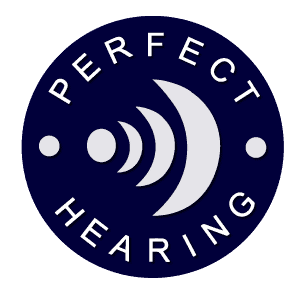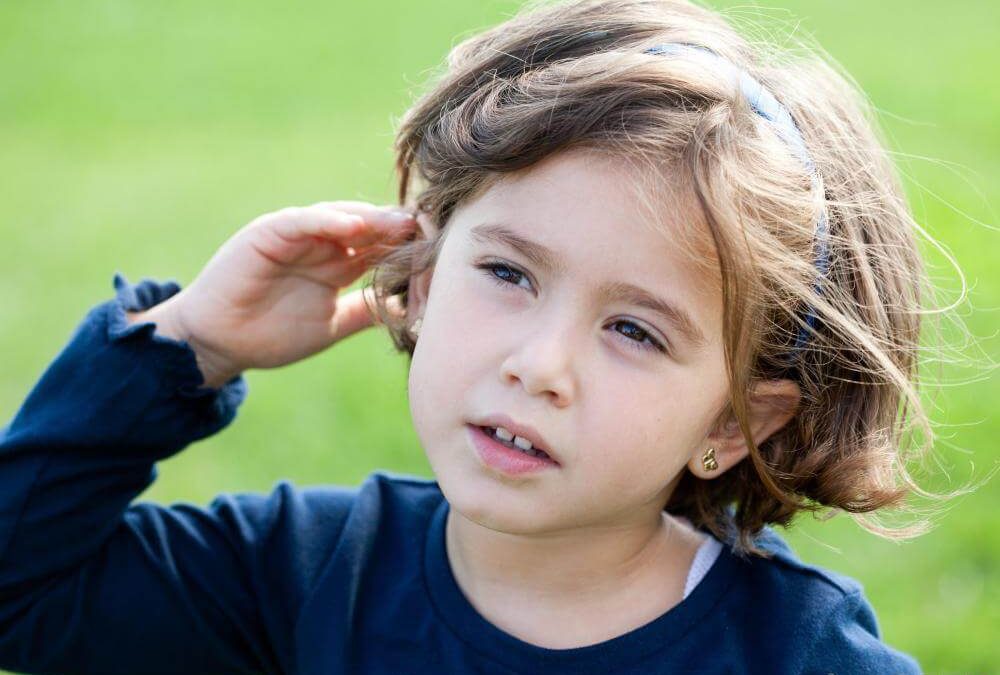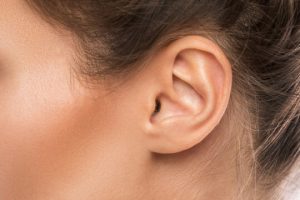In order to develop speech and language skills, your child must have a hearing ability.
Detection and intervention for hearing loss prior to six months of age results in better outcome than intervention after six months of age.
It’s a good idea to perform a hearing screening within the first three weeks of life on your newborn, especially if there is a family history of hearing loss to detect any potential problem.
Note that a baby who doesn’t pass a hearing test doesn’t necessarily have a hearing loss.
Your audiologist will perform another test to confirm the hearing loss within the first 3 months of life. If hearing loss is confirmed, treatment should start when the baby is 6 months old.
It’s extremely important to pay attention to signs that your baby is hearing well, even if your newborn passes the initial hearing test.
In the first 24 months of life, your child should reach the following hearing milestones, according to our audiologist:
From 0-4 Months
- “Jump”, cry or startle at loud sounds
- Wake up at loud noises
- Respond to your voice smiling
- Calm down at a familiar voice
From 4-9 months
- Smile when spoken to
- Pay attention to toys that make sounds
- Turn his/her head toward familiar sounds
- Make some noises
From 9-15 Months
- Make several babbling sounds
- Repeat some sounds
- Understand certain things
- Scream or use his/her voice to get your attention
- Answer to name
From 15-24 months
- Use words like “Mama” “Dada” or “bye-bye”
- Follow basic commands
- Listen to songs and stories
- Point to familiar objects
Remember that your child could be at higher risk for hearing loss if he or she:
- was a premature baby
- stayed in the neonatal intensive care unit for more than 5 days
- the doctor prescribed medicine that can lead to hearing loss
- there was problems at birth
- ear infections are frequent
- had infections that can damage hearing, such as meningitis or cytomegalovirus
Hearing tests in Malaysia can be done at any ages, and at any time you may be concerned.
Take notice of these things if you think your toddler or preschool aged child might have hearing loss:
- It’s hard for your child to understand what people are saying
- Misunderstands questions
- It’s hard for your child to speak or he/she speaks differently than other children her/his age
- You have to yell when you call his or her name
- TV volume is very high or sits very close to the screen to hear
- Problems at school
- Watch a speaker’s face very intently trying to lip read
- Complaints of ear pain, earaches or noises
- Your child says that he/she didn’t hear you. This may seem obvious but some parents assume that their children are not paying attention when in fact, they have a hearing problem
- Several times a day he or she says “what?” or “huh?”
Treatments for Childhood Hearing Loss
If your infant or child shows any of the above signs, tell your family doctor, who can refer you to a pediatric audiologist to give your child a hearing test.
If your child has a wax build-up, an ear infection or another problem that may cause temporary hearing loss, our audiologist will take care of the problem.
However, if this is not the case, and your child has a permanent hearing problem, depending on the severity and causes of hearing loss, our ear specialists will recommend hearing aids, cochlear implants and a combination of speech therapy or assistive listening devices to treat the problem.
In fact, you can find many hearing aids in Malaysia that can help your child hear better, so don’t worry, there is always a solution for every kid.
If you suspect that your child has a hearing problem, it’s highly recommended to contact our audiologist immediately.
Remember the sooner the treatment begins, the better the results are.


